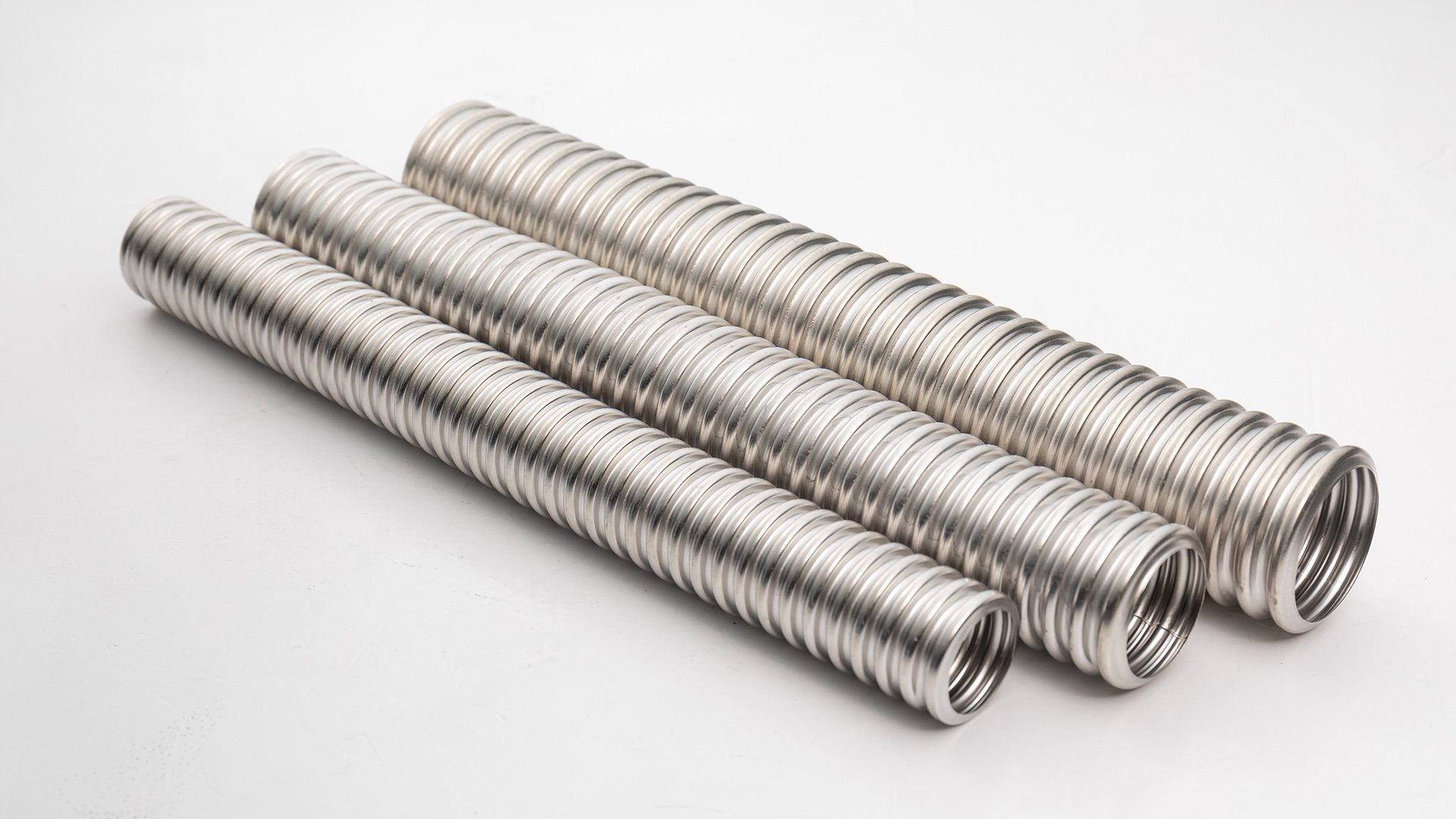Corrugated tubes are an essential component in many industries, offering flexibility, durability, and efficiency. This blog will delve into the various aspects of corrugated tubes, including their types, applications, benefits, and factors to consider when selecting them.
What is a Corrugated Tube?
A corrugated tube is a pipe with a series of parallel ridges and grooves running along its length. These tubes can be made from various materials, including metals (such as stainless steel and aluminum), plastics (like polyethylene and PVC), and even composites. The corrugated design allows the tube to be flexible while maintaining structural integrity.
Types of Corrugated Tubes
1. Metal Corrugated Tubes
Made from stainless steel 304 corrugated tubes, aluminum, or other metals, these tubes offer excellent strength and heat resistance. They are often used in applications involving high temperatures or corrosive environments.
2. Plastic Corrugated Tubes
These are typically made from polyethylene, PVC, or polypropylene. They are lightweight, flexible, and resistant to chemicals, making them suitable for a variety of industrial and residential applications.
3. Composite Corrugated Tubes
Combining materials like metal and plastic, these tubes leverage the benefits of both materials, providing enhanced performance in specific applications.
Applications of Corrugated Tubes
1. Electrical and Cable Protection
Stainless steel 304L corrugated tubes are commonly used to protect electrical cables and wires. Their flexibility allows them to be routed through complex paths, and their durability protects the cables from physical damage.
2. HVAC Systems
In heating, ventilation, and air conditioning (HVAC) systems, corrugated tubes are used for flexible ducting, allowing air to be efficiently directed through the system.
3. Automotive Industry
Corrugated tubes are used in vehicles for various purposes, including protecting wiring harnesses, fuel lines, and air ducts. Their flexibility and resistance to vibration make them ideal for automotive applications.
4. Plumbing and Drainage
Plastic corrugated tubes are often used in plumbing and drainage systems due to their resistance to corrosion and ease of installation. They are also used in agricultural irrigation systems.
Benefits of Corrugated Tubes
- Flexibility: The corrugated design allows the tube to bend and flex without breaking, making it suitable for applications requiring maneuverability.
- Durability: Corrugated tubes are designed to withstand physical damage, chemicals, and extreme temperatures, providing long-term reliability.
- Ease of Installation: Their flexibility and lightweight nature make corrugated tubes easy to install, reducing labor costs and installation time.
- Cost-Effective: With a range of materials available, corrugated tubes can be a cost-effective solution for many applications, balancing performance and budget considerations.
Selecting the Right Corrugated Tube
- Material: Choose the material based on the application requirements. Metal tubes are best for high-temperature or high-pressure environments, while plastic tubes are suitable for chemical resistance and flexibility.
- Size and Diameter: Ensure the tube’s diameter and size match the application’s needs, allowing for adequate flow or space for wires.
- Environmental Conditions: Consider the environment where the tube will be used. For example, UV-resistant materials are necessary for outdoor applications.
- Pressure and Temperature Ratings: Verify that the tube can withstand the pressure and temperature conditions of your specific application.
- Compliance and Standards: Ensure the corrugated tubes meet relevant industry standards and certifications, especially in critical applications like medical or food processing.
Conclusion
Corrugated tubes are a versatile and reliable solution for many industrial and residential applications. Their flexibility, durability, and ease of installation make them an excellent choice for protecting cables, facilitating air flow in HVAC systems, and managing fluids in plumbing and automotive contexts. By carefully selecting the appropriate material and specifications, you can ensure that corrugated tubes meet your specific needs and provide long-term performance.
Investing in high-quality corrugated tubes can enhance the efficiency and reliability of your systems, offering a cost-effective solution that adapts to a wide range of applications. Whether you need to protect electrical cables, manage air flow, or handle fluids, corrugated tubes are a proven and dependable choice.

